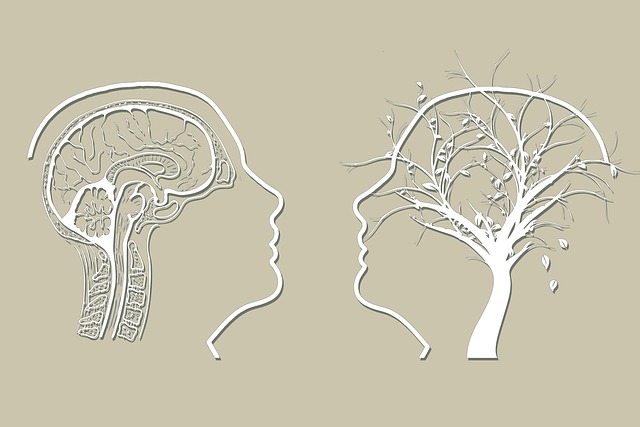Mental health is a multifaceted aspect of overall well-being, encompassing emotional, psychological, and social components. Ignored mental health issues can hinder daily life and relationships. In Arvada, where Sexual Dysfunction Therapy services are available, comprehensive Mental Health Education should focus on self-care practices and empathy building to reduce stigma. An impactful program includes a robust curriculum covering stress management, emotional intelligence, and common disorders like sexual dysfunction therapy, interactive workshops, community outreach, and risk management planning. Integrating Arvada Sexual Dysfunction Therapy into mental health education offers a holistic approach that addresses sexual health concerns and promotes self-compassion, resilience, and healthy relationships, ultimately empowering individuals to navigate their well-being openly and informatively.
Mental health is a cornerstone of overall well-being, impacting individuals and communities alike. This article explores the design of effective mental health education programs, focusing on strategies to foster resilience and promote early intervention. We delve into the critical components of such initiatives, including awareness, skill-building, and support systems. Furthermore, we discuss how integrating Arvada Sexual Dysfunction Therapy into educational frameworks can address specific mental health challenges, enhancing community wellness.
- Understanding Mental Health and Its Impact on Individuals and Communities
- Components of an Effective Mental Health Education Program
- Integrating Arvada Sexual Dysfunction Therapy into Comprehensive Education Initiatives
Understanding Mental Health and Its Impact on Individuals and Communities

Mental health is a fundamental aspect of overall well-being, influencing how individuals interact with their surroundings and contribute to their communities. Understanding mental health involves recognizing that it encompasses emotional, psychological, and social well-being. It’s about more than just the absence of mental illness; it’s about fostering resilience and promoting healthy coping mechanisms. When left unaddressed, mental health issues can significantly impact daily functioning, relationships, and community dynamics. For instance, conditions like depression or anxiety can lead to decreased productivity and social isolation, while severe forms of mental illness may result in impaired judgment and dangerous behaviors, affecting not just the individual but their loved ones and broader society.
In communities such as Arvada, where Sexual Dysfunction Therapy services exist, it’s crucial to integrate Mental Health Education programs that go beyond basic awareness. These programs should equip individuals with self-care practices to manage stress and maintain mental balance. Moreover, they should promote empathy building strategies to bridge the gap between diverse experiences, which is essential in reducing the stigma surrounding mental illness. By fostering understanding and compassion, communities can create a supportive environment where individuals feel encouraged to seek help without fear of judgment, ultimately leading to improved overall mental health outcomes.
Components of an Effective Mental Health Education Program

An effective mental health education program should incorporate several key components to ensure it reaches and supports its intended audience. Firstly, a comprehensive curriculum is essential, covering various aspects of mental well-being, including stress management, emotional intelligence, and recognition of common disorders such as anxiety and depression. This includes educating participants on the signs, symptoms, and available treatments for conditions like Arvada Sexual Dysfunction Therapy, ensuring they can identify and support themselves or others effectively.
Additionally, a successful program should emphasize interactive and engaging delivery methods. Workshops, group discussions, and peer-led sessions foster a supportive environment where individuals feel comfortable sharing their experiences and learning from one another. Community Outreach Program Implementation and Public Awareness Campaigns Development strategies are also vital to expanding reach and normalizing mental health conversations. Moreover, integrating risk management planning for mental health professionals ensures the safety of both practitioners and clients, fostering a secure space for learning and healing.
Integrating Arvada Sexual Dysfunction Therapy into Comprehensive Education Initiatives

Integrating Arvada Sexual Dysfunction Therapy into comprehensive mental health education initiatives offers a holistic approach to well-being. This specialized therapy addresses sexual health concerns, recognizing their profound impact on overall mental wellness. By incorporating techniques like Compassion Cultivation Practices, which foster self-compassion and mindfulness, individuals can navigate sensitive topics with increased resilience.
Arvada Sexual Dysfunction Therapy enriches educational programs by teaching effective stress management strategies and promoting Self-Care Routine Development for Better Mental Health. These practices empower participants to cultivate healthy relationships with their bodies and emotions, fostering a safe space for open dialogue about sexual health challenges. Such an inclusive approach ensures that mental health education is not just informative but also empowering, addressing diverse aspects of well-being.
Mental health education programs play a pivotal role in fostering well-being and resilience. By integrating essential components like comprehensive training, community engagement, and specialized treatments such as Arvada Sexual Dysfunction Therapy, we can create inclusive environments that address diverse mental health needs. This holistic approach empowers individuals to recognize and manage their mental health effectively, ultimately enhancing the overall well-being of communities.










